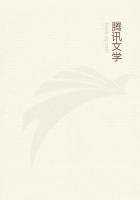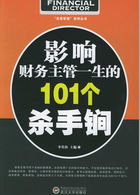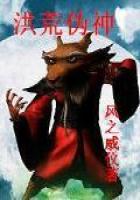The physical law being a law to which the objects of sensible intuition, as such, are subject, must have a schema corresponding to it- that is, a general procedure of the imagination (by which it exhibits a priori to the senses the pure concept of the understanding which the law determines).But the law of freedom (that is, of a causality not subject to sensible conditions), and consequently the concept of the unconditionally good, cannot have any intuition, nor consequently any schema supplied to it for the purpose of its application in concreto.Consequently the moral law has no faculty but the understanding to aid its application to physical objects (not the imagination); and the understanding for the purposes of the judgement can provide for an idea of the reason, not a schema of the sensibility, but a law, though only as to its form as law; such a law, however, as can be exhibited in concreto in objects of the senses, and therefore a law of nature.We can therefore call this law the type of the moral law.
The rule of the judgement according to laws of pure practical reason is this: ask yourself whether, if the action you propose were to take place by a law of the system of nature of which you were yourself a part, you could regard it as possible by your own will.Everyone does, in fact, decide by this rule whether actions are morally good or evil.Thus, people say: "If everyone permitted himself to deceive, when he thought it to his advantage; or thought himself justified in shortening his life as soon as he was thoroughly weary of it; or looked with perfect indifference on the necessity of others; and if you belonged to such an order of things, would you do so with the assent of your own will?" Now everyone knows well that if he secretly allows himself to deceive, it does not follow that everyone else does so; or if, unobserved, he is destitute of compassion, others would not necessarily be so to him; hence, this comparison of the maxim of his actions with a universal law of nature is not the determining principle of his will.Such a law is, nevertheless, a type of the estimation of the maxim on moral principles.If the maxim of the action is not such as to stand the test of the form of a universal law of nature, then it is morally impossible.This is the judgement even of common sense; for its ordinary judgements, even those of experience, are always based on the law of nature.It has it therefore always at hand, only that in cases where causality from freedom is to be criticised, it makes that law of nature only the type of a law of freedom, because, without something which it could use as an example in a case of experience, it could not give the law of a pure practical reason its proper use in practice.
It is therefore allowable to use the system of the world of sense as the type of a supersensible system of things, provided I do not transfer to the latter the intuitions, and what depends on them, but merely apply to it the form of law in general (the notion of which occurs even in the commonest use of reason, but cannot be definitely known a priori for any other purpose than the pure practical use of reason); for laws, as such, are so far identical, no matter from what they derive their determining principles.
Further, since of all the supersensible absolutely nothing [is known] except freedom (through the moral law), and this only so far as it is inseparably implied in that law, and moreover all supersensible objects to which reason might lead us, following the guidance of that law, have still no reality for us, except for the purpose of that law, and for the use of mere practical reason; and as reason is authorized and even compelled to use physical nature (in its pure form as an object of the understanding) as the type of the judgement; hence, the present remark will serve to guard against reckoning amongst concepts themselves that which belongs only to the typic of concepts.This, namely, as a typic of the judgement, guards against the empiricism of practical reason, which founds the practical notions of good and evil merely on experienced consequences (so-called happiness).No doubt happiness and the infinite advantages which would result from a will determined by self-love, if this will at the same time erected itself into a universal law of nature, may certainly serve as a perfectly suitable type of the morally good, but it is not identical with it.The same typic guards also against the mysticism of practical reason, which turns what served only as a symbol into a schema, that is, proposes to provide for the moral concepts actual intuitions, which, however, are not sensible (intuitions of an invisible Kingdom of God), and thus plunges into the transcendent.What is befitting the use of the moral concepts is only the rationalism of the judgement, which takes from the sensible system of nature only what pure reason can also conceive of itself, that is, conformity to law, and transfers into the supersensible nothing but what can conversely be actually exhibited by actions in the world of sense according to the formal rule of a law of nature.
However, the caution against empiricism of practical reason is much more important; for mysticism is quite reconcilable with the purity and sublimity of the moral law, and, besides, it is not very natural or agreeable to common habits of thought to strain one's imagination to supersensible intuitions; and hence the danger on this side is not so general.Empiricism, on the contrary, cuts up at the roots the morality of intentions (in which, and not in actions only, consists the high worth that men can and ought to give to themselves), and substitutes for duty something quite different, namely, an empirical interest, with which the inclinations generally are secretly leagued; and empiricism, moreover, being on this account allied with all the inclinations which (no matter what fashion they put on)degrade humanity when they are raised to the dignity of a supreme practical principle; and as these, nevertheless, are so favourable to everyone's feelings, it is for that reason much more dangerous than mysticism, which can never constitute a lasting condition of any great number of persons.














